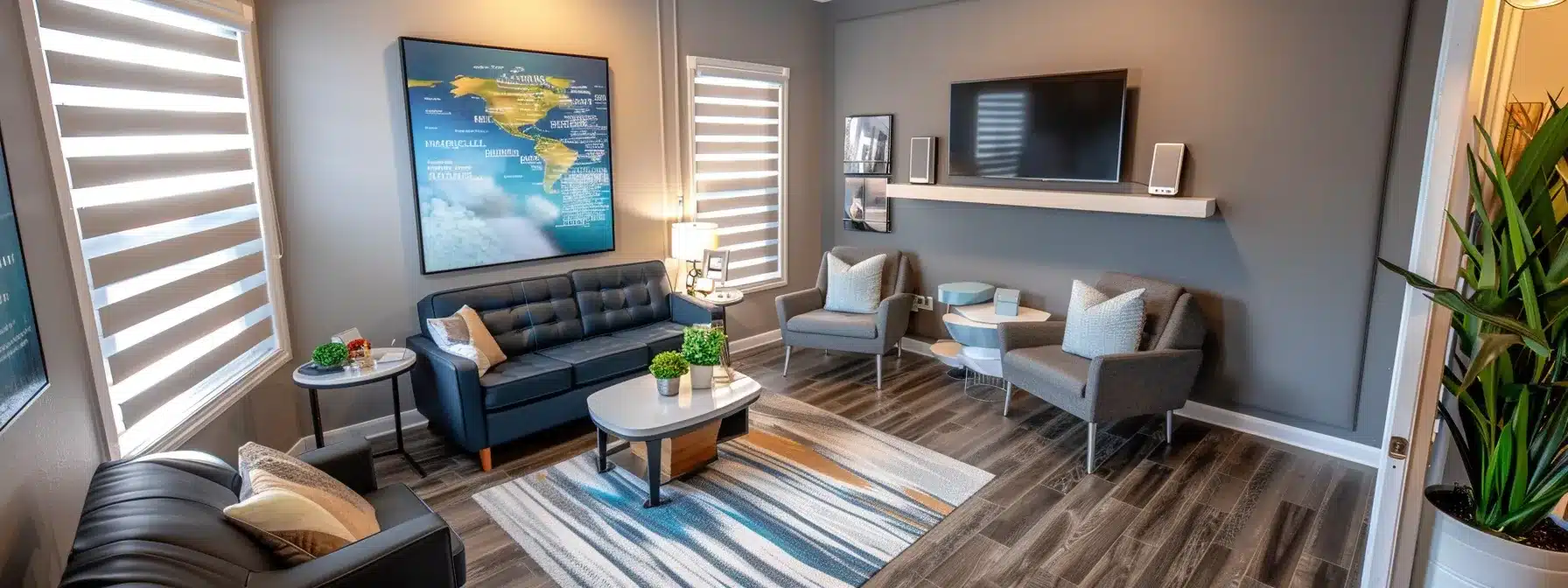Maximizing Your Therapy Practice’s Online Presence With Effective Local SEO Strategies
Are you struggling to attract local clients to your therapy practice? Many mental health professionals overlook the power of local SEO strategies that can enhance their online visibility. In this post, we will explore effective techniques such as optimizing your website for local searches, enhancing your Google My Business profile, and building local citations. By implementing these strategies, you’ll not only improve your practice’s online presence but also connect with clients who need your services the most. Let’s dive into how effective local SEO can significantly boost your practice in a competitive market.
Understanding the Importance of Local SEO for Therapy Practices

Local SEO plays a crucial role in attracting clients to your therapy practice. Understanding the difference between local SEO and general SEO is essential, as it focuses on optimizing your visibility to those searching for nearby services. By enhancing your online presence through strategies like link building and targeting long-tail keywords, you can directly impact practice growth and effectively address common stress factors in your community.
The Role of Local Search in Attracting Clients Nearby
As a therapy practice, leveraging local search is vital for attracting clients in your area. When potential clients search for services like therapy, key factors such as your reputation management and keyword strategy directly influence their decision-making. By optimizing your online visibility with relevant keywords, we can enhance usability and lead generation, ensuring that those who need confidential support find you easily.
| Factor | Description |
|---|---|
| Reputation Management | Maintaining a positive online reputation encourages clients to choose your practice. |
| Keyword Strategy | Targeting local keywords helps you appear in relevant searches conducted by potential clients. |
| Usability | An easy-to-navigate website improves the chances of converting visitors into clients. |
| Lead Generation | Effective local SEO strategies drive more inquiries from nearby clients seeking your services. |
Differences Between Local SEO and General SEO
Understanding the differences between local SEO and general SEO is essential for therapy practices seeking to enhance their online presence. Local SEO focuses specifically on targeting keywords relevant to your geographic area, ensuring that potential clients searching for therapeutic services nearby can find you easily. In contrast, general SEO encompasses a broader scope, aiming for visibility across various topics without restricting the results to a local context. By effectively utilizing tools like a Google Business Profile and engaging in targeted content creation, we can avoid issues such as duplicate content, ultimately improving our practice’s rankings in local search results, a key component of SEO for therapists.
| Aspect | Local SEO | General SEO |
|---|---|---|
| Focus | Targets local keywords and searches | Broad keyword targeting |
| Tools | Google Business Profile | Website optimization tools |
| Content Creation | Local-centric content | General content |
| Outcome | Increased visibility for local clients | Wider reach without geographic specificity |
Impact of Online Visibility on Practice Growth
Online visibility is pivotal for the growth of your therapy practice, as it enhances your ability to connect with clients seeking mental health support. By implementing an effective content strategy and utilizing tools like Google Business, you can improve your search rankings and visibility. Additionally, incorporating social media marketing into your outreach allows you to engage with potential clients, fostering trust and encouraging them to reach out for your services.
| Strategy | Description |
|---|---|
| Content Strategy | Creating valuable content helps establish your authority in mental health, attracting more clients. |
| Google Business | Optimizing your Google Business profile enhances your local search visibility. |
| Social Media Marketing | Engaging on social media platforms builds relationships with potential clients. |
Local SEO can make your therapy practice stand out in a crowded market. Now, let’s look at how to fine-tune your website to attract those seeking help right in your community.
Optimizing Your Therapy Website for Local Clients

To effectively connect with local clients, we must focus on three key strategies for optimizing our therapy websites. First, incorporating local keywords seamlessly into our content improves visibility on search engine results pages. Second, creating location-specific pages allows potential clients to find relevant information easily. Finally, ensuring a mobile-friendly design with quick load times helps reduce bounce rates, aligning with best practices in web design.
Incorporating Local Keywords Effectively
Incorporating local keywords effectively is essential for enhancing the relevance of our therapy website in search results. By strategically placing keywords within our content, we improve user experience and help potential clients find our services more easily. For instance, using phrases like “therapy in [your city]” or “mental health support near me” not only attracts attention but also aligns with targeted advertising efforts to reach those actively seeking help in our area.
- Identify local keywords relevant to your practice.
- Integrate these keywords naturally within your website’s content.
- Focus on providing a clear user experience that guides visitors to contact you.
Creating Location-Specific Pages
Creating location-specific pages on our therapy website is a vital strategy for enhancing visibility in search engine results. By tailoring content that speaks directly to our target audience in those areas, we improve our chances of being found when potential clients search for services like ours. Implementing keyword research that includes terms relevant to various locations enhances our citations and can lead to increased inquiries; for instance, referencing platforms like Psychology Today can further add credibility to our services and help establish our practice as a trusted local resource.
Ensuring Mobile-Friendly Design and Quick Load Times
Ensuring a mobile-friendly design and quick load times is essential for the success of our therapy practice’s online presence. With many potential clients searching for therapy services on their smartphones, we must prioritize a seamless user experience to effectively reach them. Utilizing expert SEO services, like those from SEMrush, allows us to improve site performance and enhance our brand visibility. For instance, optimizing how our site displays cognitive behavioral therapy resources on mobile devices can significantly reduce bounce rates and encourage inquiries from those seeking help.
| Strategy | Description |
|---|---|
| Mobile-Friendly Design | Ensures our website is accessible and user-friendly for clients on smartphones and tablets. |
| Quick Load Times | Improved load times enhance user experience, encouraging more visitors to stay and explore our services. |
| Site Optimization | Using tools like SEMrush helps identify areas for improvement in our site’s performance. |
Your website is just the beginning. Next, we’ll focus on your Google My Business profile to attract even more local clients to your practice.
Enhancing Your Google My Business Profile

To enhance your online presence and attract more clients to your clinic, we must focus on optimizing your Google My Business profile. Key steps include claiming and verifying your listing, ensuring you provide accurate and detailed business information, and adding engaging photos and updates that showcase your services like behavior therapy and couples therapy. Each of these elements is a vital strategy within your overall marketing strategy to connect effectively with those seeking your support.
Steps to Claim and Verify Your Listing
To claim and verify your Google My Business listing, start by logging into your Google account and navigating to the Google My Business page. There, you can enter your therapy practice’s name and address to see if it’s already listed. If it is, you’ll need to request ownership; if not, follow the prompts to add your practice. After inputting your therapy details, Google will send a verification postcard to your listed address, which you must receive and enter the code from it to complete the verification process. This step is crucial, as a verified listing boosts your practice’s visibility to potential patients and enhances your overall local SEO strategy.
Providing Accurate and Detailed Business Information
Providing accurate and detailed business information is critical for increasing the visibility of your therapy practice in local search results. We know that potential clients often rely on online profiles to make decisions about which therapists to contact, so ensuring your listing is complete with your practice’s name, address, phone number, and website is essential. This information not only enhances your reputation but also aligns with user intent, guiding clients to your landing page where they can learn more about your services and schedule appointments.
| Element | Importance |
|---|---|
| Practice Name | Helps clients identify your business easily. |
| Address | Ensures clients can find your location without difficulty. |
| Phone Number | Facilitates direct communication with potential clients. |
| Website | Drives traffic to your landing page, helping convert inquiries into appointments. |
Adding Photos and Updates to Engage Clients
Adding photos and regular updates to your Google My Business profile is an impactful way to engage potential clients searching for physical therapy services. Images of your practice environment, team, and activities can enhance your appeal and offer a personal touch that resonates with those searching locally. Moreover, by providing fresh content, you not only cater to voice search queries but also improve your visibility in local search results, steering clear of pitfalls like keyword stuffing that can detract from user experience.
Now that your Google My Business profile shines, it’s time to broaden your reach. Building local citations and listings will help more people find you, connecting your services to those who need them most.
Building Local Citations and Listings

Submitting to relevant online directories is essential for enhancing our therapy practice’s visibility. We need to maintain consistent contact information across all platforms to improve trust and engagement. Additionally, leveraging industry-specific platforms allows us to reach potential clients looking for services like dialectical behavior therapy or psychotherapy. Each of these strategies plays a crucial role in our content marketing and backlink efforts.
Submitting to Relevant Online Directories
Submitting to relevant online directories is a powerful way to enhance the credibility of my therapy practice. By ensuring that I list my business on well-known platforms, I not only improve visibility but also tap into valuable analytics that can guide my marketing efforts. Through the use of Moonraker’s Core Marketing System, I’ve learned to focus on these directories, which act as a foundation for my online presence, helping potential clients find me more easily while establishing trust in my expertise as a consultant in mental health services.
Maintaining Consistent Contact Information Everywhere
Maintaining consistent contact information across all online platforms is essential for building trust and credibility with potential clients. When I ensure that my therapy practice’s name, address, phone number, and website are uniform on directories and listings, it not only enhances my local SEO but also makes it easier for clients to reach out for support. This straightforward approach directly influences how clients perceive my practice, alleviating concerns about professionalism and reliability while boosting my chances of securing new appointments.
Leveraging Industry-Specific Platforms for Greater Reach
Leveraging industry-specific platforms is a strategic move for enhancing the online visibility of my therapy practice. By listing my services on reputable directories such as TherapyDen or Psychology Today, I directly connect with individuals seeking specialized mental health support. These platforms not only improve my local SEO but also positions me as a credible resource within the mental health community, making it easier for potential clients to discover and trust my services.
| Platform | Benefits |
|---|---|
| TherapyDen | Connects directly with clients actively looking for therapy services. |
| Psychology Today | Established credibility with a broad audience seeking qualified therapists. |
| GoodTherapy | Fosters trust through a vetted therapist directory aligning with ethical practices. |
Your connections with local listings can only go so far. Next, we will explore how to harness the power of online reviews to strengthen your presence and credibility in the community.
Encouraging and Managing Online Reviews

Encouraging clients to leave online reviews is essential for enhancing our therapy practice’s reputation and visibility. I’ll discuss effective strategies for motivating clients to share their experiences, the importance of responding appropriately to both positive and negative feedback, and how to monitor our reputation across various review sites. These steps are vital in building trust and attracting new clients while optimizing our local SEO efforts.
Strategies to Motivate Clients to Leave Reviews
To effectively motivate clients to leave reviews for my therapy practice, I focus on creating a comfortable and open environment during our sessions. After establishing a trusting relationship, I gently remind clients how valuable their feedback is for others seeking support. By providing clear instructions on how they can leave a review and emphasizing the positive impact their words can have on those looking for therapy, I increase the likelihood of receiving thoughtful testimonials that enhance my online reputation and improve my local SEO efforts.
Responding Appropriately to Feedback
Responding appropriately to feedback is essential for maintaining a positive reputation in my therapy practice. When I receive positive comments, I make it a point to express my gratitude, as this not only shows appreciation but also fosters a sense of community among clients. On the other hand, constructive criticism provides valuable insights into areas for improvement; I approach these reviews with an open mind, addressing concerns promptly and offering solutions when necessary. By engaging thoughtfully with both types of feedback, I enhance my online reputation, which ultimately supports my local SEO efforts and attracts more clients seeking therapy services.
Monitoring Your Reputation Across Review Sites
Monitoring my reputation across review sites is crucial for maintaining a positive online presence and attracting new clients to my therapy practice. I regularly check platforms such as Google, Yelp, and specialized therapy directories to ensure that I’m aware of how clients perceive my services. By staying proactive, I can quickly address any negative feedback and celebrate positive testimonials, reinforcing trust with potential clients and enhancing my local SEO efforts.
- Check multiple review platforms regularly to stay informed.
- Address negative reviews promptly to show responsiveness.
- Highlight positive testimonials to build credibility.
- Encourage clients to leave reviews to enhance visibility.
Online reviews are the voice of your business. But true strength lies in gathering support offline, bridging the gap between your online presence and the local community.
Engaging With the Local Community Online and Offline

Engaging with the local community is crucial for maximizing my therapy practice’s online presence. By creating content that resonates locally, participating in community events and workshops, and collaborating with local businesses and influencers, I can strengthen trust and visibility among potential clients. Each of these strategies not only enhances my local SEO efforts but also fosters meaningful connections that benefit my practice and those I serve.
Creating Content That Resonates Locally
Creating content that resonates locally is essential for attracting clients to my therapy practice. By focusing on relevant topics that address the specific needs and challenges faced by my community, I can engage potential clients effectively. For example, writing blog posts about local mental health resources or workshops not only showcases my expertise but also builds trust with individuals seeking support in their area.
| Strategy | Description |
|---|---|
| Local Topics | Write about mental health issues specific to the community. |
| Resources | Highlight local supportive organizations and services. |
| Workshops | Promote local events that involve mental health awareness. |
Participating in Community Events and Workshops
Participating in community events and workshops allows me to establish a stronger connection with potential clients while enhancing my therapy practice’s online presence. By attending local mental health fairs or speaking at wellness workshops, I can share valuable insights about the services I offer, which not only raises awareness but also builds trust in the community. These engagements create opportunities for face-to-face interaction, fostering relationships that translate into online engagement and visibility, ultimately boosting my local SEO efforts.
Collaborating With Local Businesses and Influencers
Collaborating with local businesses and influencers is a strategic approach to enhancing my therapy practice’s online presence. By forming partnerships with health-focused organizations or fitness centers, I can tap into their existing clientele and share valuable resources related to mental well-being. Additionally, engaging local influencers who align with my values allows me to reach a wider audience while building credibility, as their endorsements can resonate deeply with potential clients seeking therapy services in my area.
Conclusion
Maximizing your therapy practice’s online presence through effective local SEO strategies is essential for attracting and connecting with potential clients in your area. By focusing on optimized keywords, enhancing your Google My Business profile, and engaging with your local community, you significantly improve your visibility in search results. Remember, maintaining a strong online reputation and actively managing reviews are critical components of building trust and encouraging inquiries. Implementing these strategies not only positions your practice for growth but also ensures those in need of your services can easily find and reach out to you.
